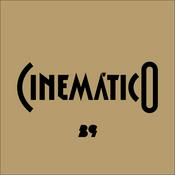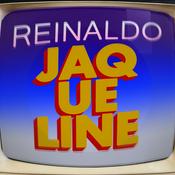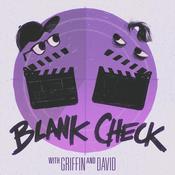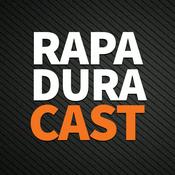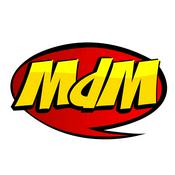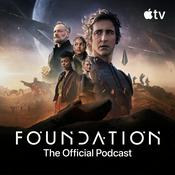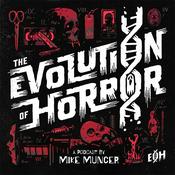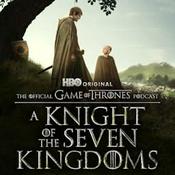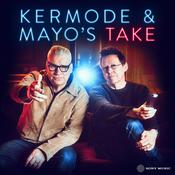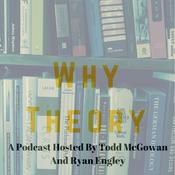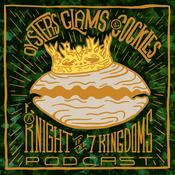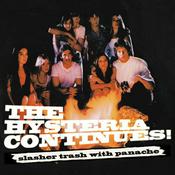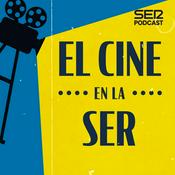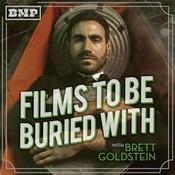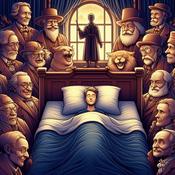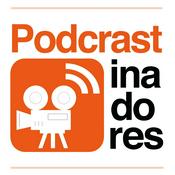The Next Picture Show
Genevieve Koski, Keith Phipps, Tasha Robinson & Scott Tobias
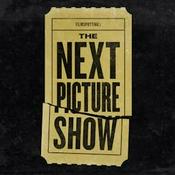
Último episódio
521 episódios
- With its bold stylization, pop soundtrack, and provocative sensibility, Emerald Fennell’s new Wuthering Heights appeals to a contemporary audience so openly it can’t help but call to mind Baz Luhrmann’s 1996 adaptation of another literary classic about doomed lovers, William Shakespeare’s Romeo + Juliet. Fennell citing it as a reference point for her film prompted us to revisit what made Lurhmann’s approach so enticing and/or annoying at the time, and consider how its maximalist mix of reverence and irreverence toward the source material — not to mention an ascendant Leonardo DiCaprio in peak heartthrob mode — has turned it into a generation’s formative Romeo and Juliet.
Please share your thoughts about William Shakespeare’s Romeo + Juliet, Wuthering Heights, or anything else in the world of film, by sending an email or voice memo to [email protected], or leaving a short voicemail at (773) 234-9730.
Learn more about your ad choices. Visit megaphone.fm/adchoices - Sam Raimi's new survival thriller Send Help is more overtly comedic and cartoonishly violent than the other film in this week's pairing of dueling castaway duos, but those qualities are both rooted in complimentary ideas about class, gender, and power. They're also both rooted in a baseline cynicism toward humanity that informs a lot of Raimi's work, as well as our discussion of Send Help, for which we are once again joined by cultural critic and friend of the show Charles Bramesco. Then in Connections we bring 1974's Swept Away back into the discussion to see how its sexual fantasy aligns with Send Help's revenge fantasy, and how both are shaped by these films' desert (or is it deserted?) island setting.
Please share your thoughts about Swept Away, Send Help, or anything else in the world of film, by sending an email or voice memo to [email protected], or leaving a short voicemail at (773) 234-9730.
Next Pairing: Emerald Fennell's Wuthering Heights and Baz Luhrmann's Romeo + Juliet.
Learn more about your ad choices. Visit megaphone.fm/adchoices - What happens when two people on opposite sides of a power imbalance end up stranded together on a deserted island? Before that was the premise of Sam Raimi’s new comedic thriller Send Help, it was the setup for Lina Wertmüller’s 1974 romantic farce Swept Away, only with the genders reversed and the sexual and political provocation turned way up. So this week we’re joined by critic, friend of the show, and Wertmüller aficionado Charles Bramesco to sort through Swept Away’s overlapping layers of satire, metaphor, and titillation, in an attempt to pinpoint what the film is actually trying to say about gender and class relations.
Please share your thoughts about Swept Away, Send Help, or anything else in the world of film, by sending an email or voice memo to [email protected], or leaving a short voicemail at (773) 234-9730.
Learn more about your ad choices. Visit megaphone.fm/adchoices - Even without Al Pacino's name in its cast list, the new Dead Man's Wire would invite comparisons to Dog Day Afternoon in its dramatization of a real-life 1970s hostage situation turned public spectacle. Whether it benefits from comparisons to Sidney Lumet's 1975 crime classic is another question, one we take up in our discussion of Gus Van Sant's first new feature in eight years. After that, we bring Dog Day Afternoon back in for Connections, to consider how these two films about volatile, narcissistic men and their ostensibly populist schemes fit into the proud tradition of amateur-hour crime movies, and whether a modern film depicting Indianapolis half a century ago has any hope of evoking its setting the way Lumet captured contemporary 1970s New York.
Please share your thoughts about Dog Day Afternoon, Dead Man's Wire, or anything else in the world of film, by sending an email or voice memo to [email protected], or leaving a short voicemail at (773) 234-9730.
Next pairing: Sam Raimi's Send Help and Lina Wurtmuller's Swept Away.
Learn more about your ad choices. Visit megaphone.fm/adchoices - In adapting the true story about a '70s hostage crisis that played out on television and in the public eye, Gus Van Sant's new Dead Man's Wire is just asking to be compared to 1975's Dog Day Afternoon — and who are we to resist an invitation to talk about yet another Sidney Lumet classic? So this week we revisit a film we have all previously seen and admired, but still has the ability to surprise with its unconventional approach to a bank robbery gone wrong, from its persistent sense of humor to its shifting perspective on Al Pacino's criminal protagonist. Then in Feedback, we continue the conversation about our podcast's namesake film, and answer a recurring question about our archives.
Please share your thoughts about Dog Day Afternoon, Dead Man's Wire, or anything else in the world of film, by sending an email or voice memo to [email protected], or leaving a short voicemail at (773) 234-9730.
Learn more about your ad choices. Visit megaphone.fm/adchoices
Mais podcasts de TV e cinema
Podcasts em tendência em TV e cinema
Sobre The Next Picture Show
Looking at cinema's present via its past. From the former editorial team of The Dissolve, The Next Picture Show examines how classic films inspire and inform modern movies. Episodes take a deep dive into a classic film and its legacy, then compare and contrast that film with a modern successor. Hosted and produced by Genevieve Koski, Keith Phipps, Tasha Robinson, and Scott Tobias.
Site de podcastOuça The Next Picture Show, Cinemático e muitos outros podcasts de todo o mundo com o aplicativo o radio.net
Obtenha o aplicativo gratuito radio.net
- Guardar rádios e podcasts favoritos
- Transmissão via Wi-Fi ou Bluetooth
- Carplay & Android Audo compatìvel
- E ainda mais funções
Obtenha o aplicativo gratuito radio.net
- Guardar rádios e podcasts favoritos
- Transmissão via Wi-Fi ou Bluetooth
- Carplay & Android Audo compatìvel
- E ainda mais funções

The Next Picture Show
Leia o código,
baixe o aplicativo,
ouça.
baixe o aplicativo,
ouça.

